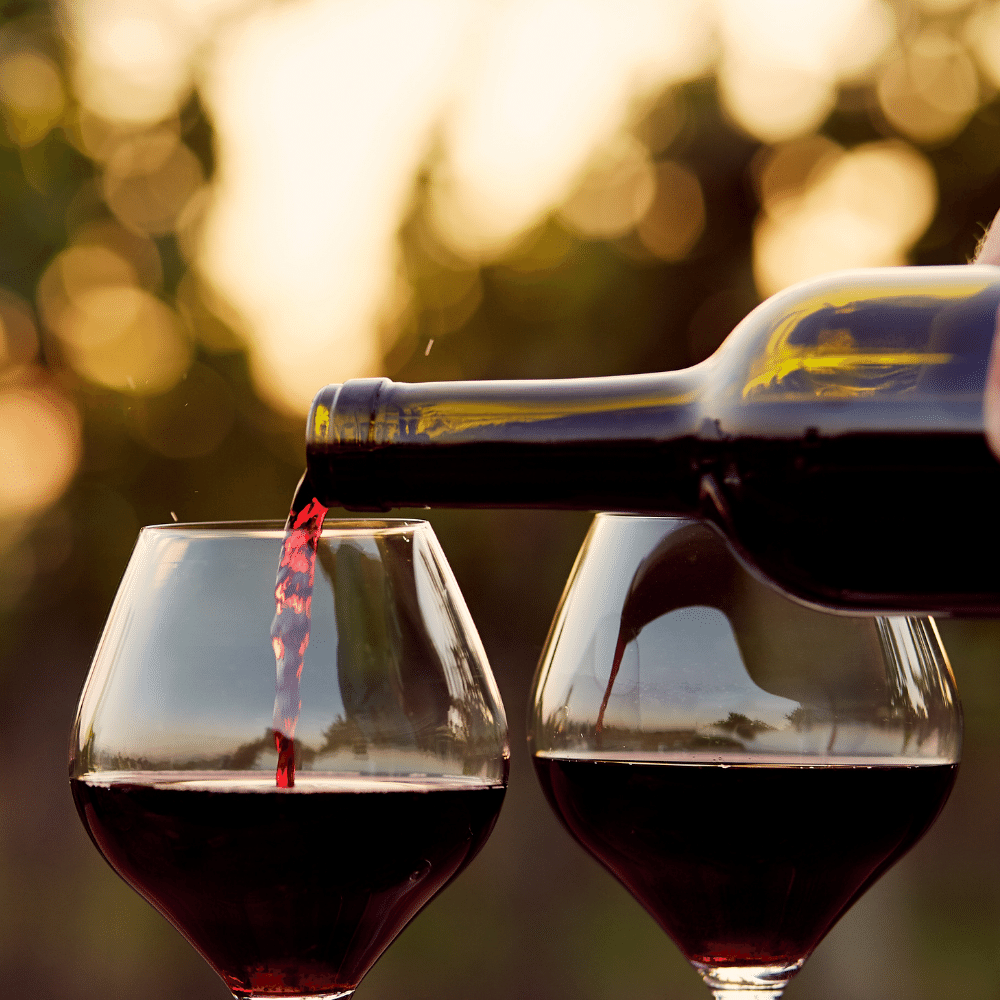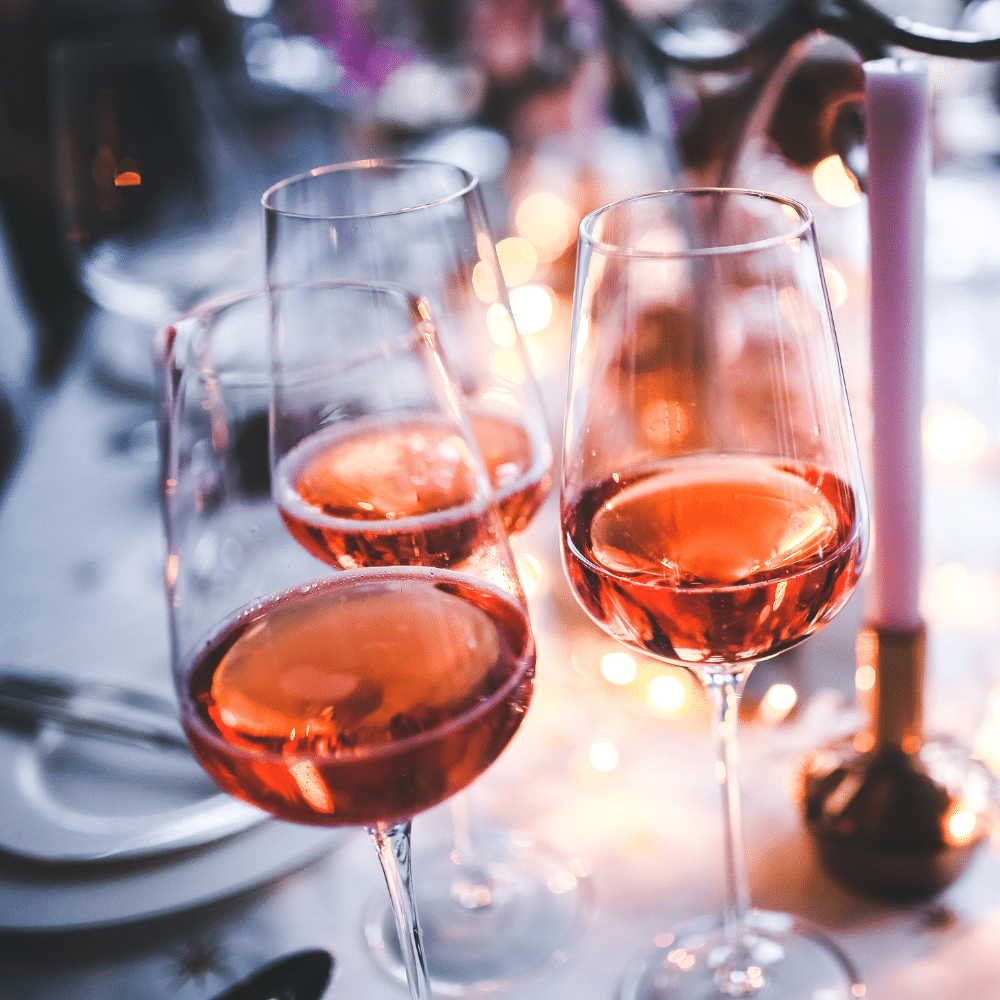Scallops are some of the most succulent and delicious seafoods around.
From Seared Sea Scallops with Citrus-Caper Sauce to Pan Seared Garlic Butter Sea Scallops, there are endless ways to enjoy this delectable treat.
But what about scallop wine pairing?
The perfect wine can take your culinary experience from good to great — it can enhance and bring out all of the flavors in a dish that you didn’t even know was possible!
And when it comes to pairing wines with scallops, you’ll want a bottle that won’t overpower the delicate flavor of the mollusk but instead will complement it perfectly.
So, what wine goes with scallops?
The best wines to pair with scallops are light-bodied white wines, such as Chardonnay, Pinot Grigio, Sauvignon Blanc, and Champagne. For a richer flavor profile, opt for a Burgundy or oaked Chardonnay. Sparkling wines also work well with scallops.
So whether you’re planning an evening at home or getting ready for a special gathering, we’ve got just what you need: information on what wines go best with sea scallops!
We’ll explore different pairings as well as taste profiles so that whatever your occasion is, every sip will be worth savoring.

Why Consider Serving Wine With Scallops?
Serving wine with scallops is a great way to enhance the flavor of this delicious seafood delicacy.
Scallops are mild in taste and texture, so they pair well with almost any type of wine.
Whether you’re grilling your scallops on the BBQ or sautéing them in a pan, there’s a perfect wine to accompany it.
When pairing wines with food like scallops, it’s important to consider both flavor and texture.
The sweetness and acidity of certain wines can bring out the naturally sweet flavors of scallops while also cutting through their richness.
Additionally, different types of wines have varying levels of tannins that can provide an interesting contrast when paired with the softness of a cooked scallop.
The Best Red Wines For Scallops

Red wines are a classic choice for sea scallops, especially when they are served with other meats. Some of the most popular and delicious red wines to pair with scallops include Pinot Noir, Merlot, Cabernet Sauvignon, and Zinfandel.
Pinot Noir has a light body and is often described as having earthy notes that can pair nicely with the briny flavor of scallops. Merlot is also light-bodied but it tends to have more fruitiness than Pinot Noir which can be great with richer preparations of sea scallops such as those cooked in butter or cream sauce.
Cabernet Sauvignon is full-bodied and will stand up well to heartier preparations of sea scallops such as those grilled over an open flame.
Finally, Zinfandel has a medium body and can provide balance between the richness of some sauces while still being able to match the natural sweetness of sea scallop meat itself.
The Best White Wines For Scallops

When it comes to white wines, you can’t go wrong with a Sauvignon Blanc. This crisp and refreshing white is perfect for pairing scallops due to its bright acidity, citrus notes, and herbal flavors. The sharpness of the wine cuts through the rich flavor of the seafood and creates a beautiful marriage between them.
Chardonnay is another great option for scallops – especially with preparations that have added fat like butter or cream sauces. The bolder oak-infused styles pair well as they provide an additional layer of complexity that pairs nicely with shellfish like scallops.
Finally, Muscadet from France’s Loire Valley also makes for a great pairing option as it has light body and minerality that helps cut through the richness of seafood dishes made with butter or cream sauces while adding just enough sparkle to enhance those flavors even more.
The Best Rosé Wines For Scallops

Rosé wines can be a great option for pairing with sea scallops. These light and flavorful wines have just the right balance of acidity, sweetness, tannins, and fruit flavors to bring out the best in this seafood delicacy.
When looking for a good rosé to pair with sea scallops, go for one that has bright and refreshing flavors such as strawberry or raspberry. Choose a wine that is dry rather than sweet – while sweet wines can complement scallops nicely, they should never overpower the delicate taste of the seafood itself.
Look for rosés from France such as Provence Champagnes or Sancerre Rosés; Italian Pinot Grigio Blushes; Spanish Tempranillos; or California Zinfandels. You may even want to experiment with some lighter reds like Beaujolais Nouveaus or Grenache Roses.
Other Wines To Pair With Scallops
While the wines discussed above are all great choices for pairing with scallops, there are still other possibilities you may want to explore.
Sparkling wines like Prosecco, Cava, or Champagne pair wonderfully with sea scallops due to their bright and lively flavors that cut through the richness of the seafood.
For a unique twist on traditional wine pairings, try exploring some dessert wines like late-harvest Riesling and Moscato.
These offer sweet, luscious notes that can stand up to even the most intensely flavored dishes.
Additionally, sparkling dessert wines such as Asti Spumante have an added bonus of a light effervescence that helps further balance out high-fat dishes like scallops.
Scallops & Wine Serving Ideas
When it comes to scallops and wine pairing, there are plenty of possibilities.
So let your creativity take over!
For a dinner party or intimate dinner at home, serve the scallops on an elegant platter with a selection of crusty breads, olives, and fresh vegetables.
Complement the plate with a bottle of white or rosé for a light and refreshing meal.
If you’re hosting a larger gathering like a summer BBQ, opt for grilled scallops served alongside seasonal salads—think wild greens tossed in olive oil paired with crisp rosé or chilled pinot grigio.
You can also mix things up by making one-bite hors d’oeuvres out of mini pan-fried sea scallops drizzled in butter sauce and served alongside sparkling wines like prosecco or cava.
Serving Temperature And Glassware
Serving temperature and glassware can make a big difference when it comes to the overall experience of your scallops pairing.
When selecting wines to serve with scallops, choose the right glassware for the type of wine you are serving – for instance, if you are serving red wine, use a larger bowl-shaped glass; if you are serving white wine or rosé, use smaller glasses shaped like tulips.
When it comes to serving temperature, keep in mind that white wines should be served chilled at about 45° F (7° C) while reds should be served slightly warmer at around 60° F (15.5° C).
Rosés usually need to be served between these two temperatures – around 52-54° F (11-12° C). As for sparkling wines and champagnes, serve them well chilled at about 42-48 °F (6-9 °C).
Conclusion
With so many different wines to choose from, it can be overwhelming to decide which one is the best for scallops.
But if you keep in mind your own personal taste and preferences, as well as the flavors of both the dish and the particular type of scallops, you should find success in finding an excellent wine pairing.
So, what wine pairs well with scallops?
The best wines to pair with scallops are light and delicate whites like Pinot Grigio, Chardonnay, or Sauvignon Blanc. For a slightly lighter option, try champagne or sparkling wine. Burgundy can also be a nice accompaniment for scallops if you’re looking for a fuller flavor.
When selecting a bottle of wine to enjoy with your sea scallops dish, trust your instincts because there is no right or wrong answer when it comes to choosing a delicious pairing.
If you are ever unsure – just ask a sommelier! They will always have great insight into what may work best for any given meal.
Jenny has always been passionate about cooking, and she uses her platform to share her joy of food with others. Her recipes are easy to follow, and she loves giving tips and tricks to help others create their own unique culinary creations.

